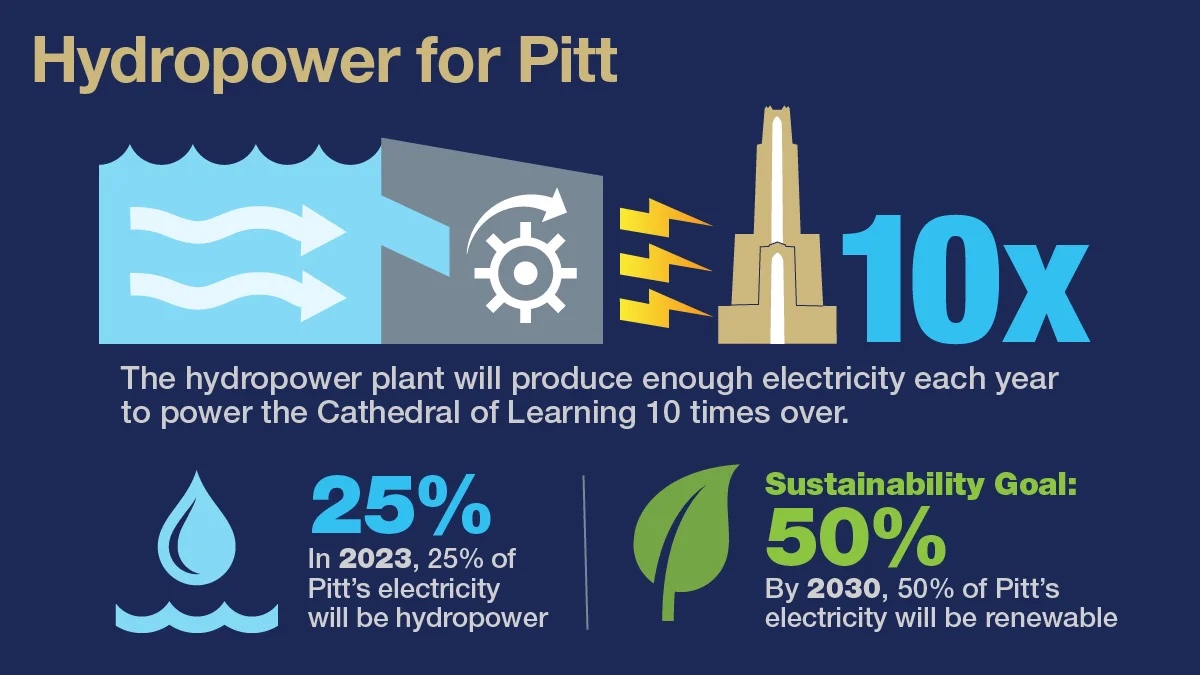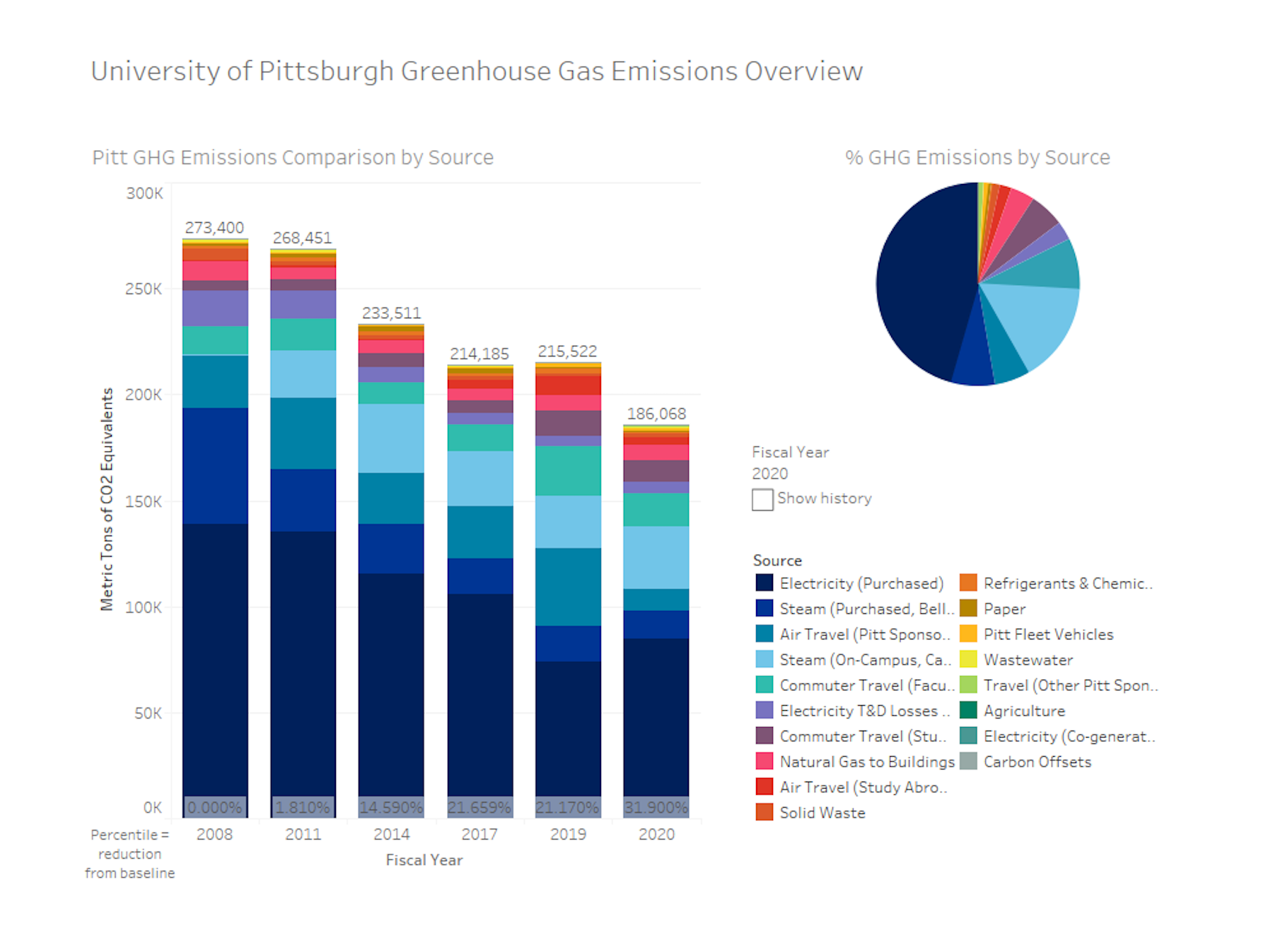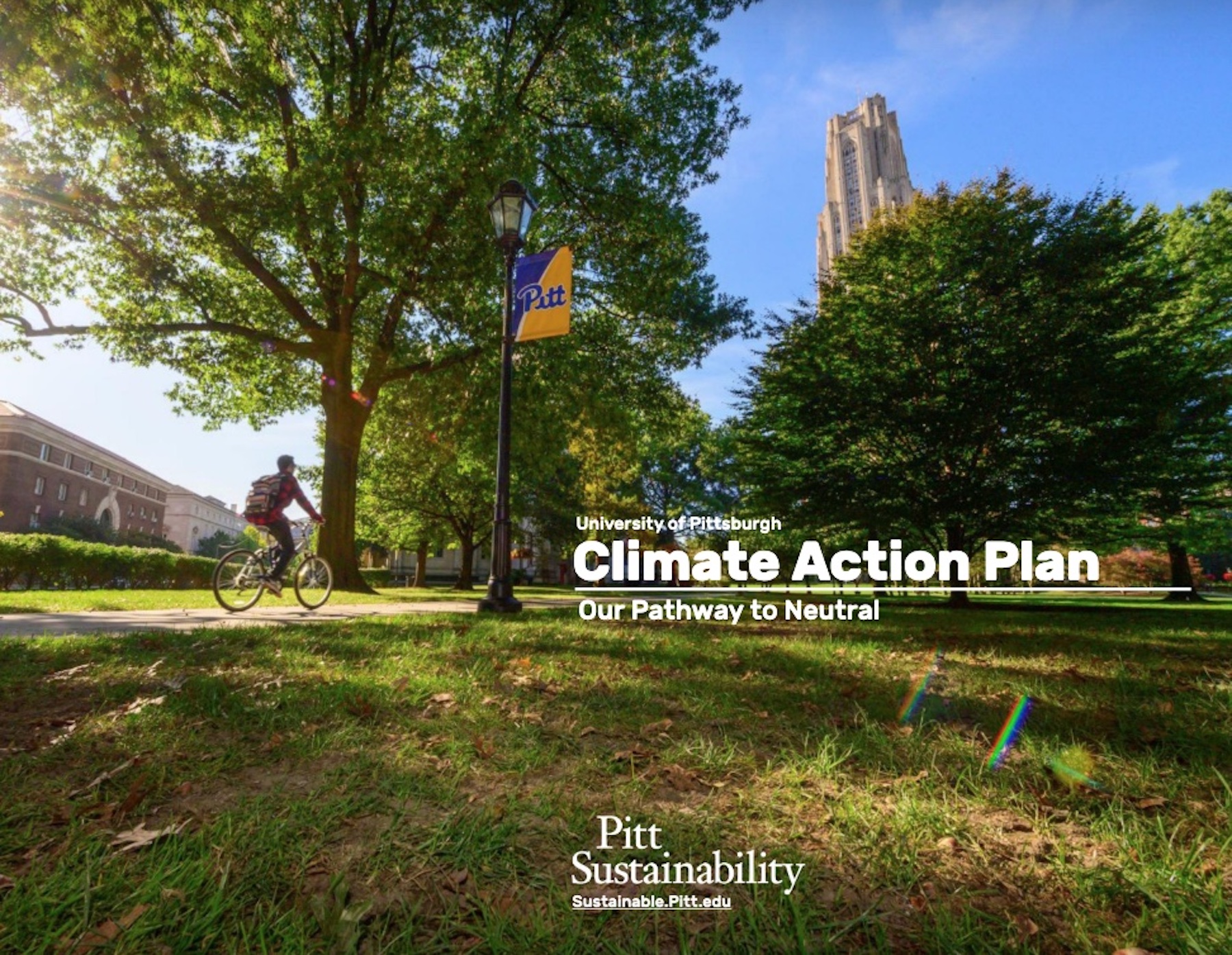The University of Pittsburgh has released the Pitt Climate Action Plan, detailing how the University will achieve its goal to go carbon neutral by 2037 through investments in clean energy, transportation, efficiency and other areas. By 2037, efforts detailed in the plan will result in a net reduction in annual emissions equivalent to taking more than 45,000 cars off the road.
AMBITIOUS GOAL RESTS ON 3 PILLARS
The report details three pillars for achieving 2037 goals: energy demand reduction; clean supply via renewable and clean energy investment; and low carbon connections via active, shared and low carbon mobility.
Planned investments in energy efficiency will decrease the use of utilities on campus, while investments in electricity generation, including agreements for local hydroelectric and solar power that are already underway, will help ensure that the energy the University does consume is clean.

Energy demand reductions from space use optimization, existing building efficiency, and new building performance will enable the university to avoid 27,100 metric tons of carbon dioxide equivalent (MT CO2e). Carbon emissions will be reduced by establishing and supporting low carbon connections for commuting and air travel through strategies such as shifting commuting modes to more active, shared, and low carbon choices; an increase in flex work arrangements, air travel reductions, and air travel offsets.
'NEED FOR URGENCY' IN 2037 GOAL
“The Pitt Climate Action Plan lays out our institutional climate action strategy for the University community and details how they can get involved,” said Pitt Director of Sustainability Aurora Sharrard, who also chairs the Carbon Commitment Committee of the Chancellor’s Advisory Council on Sustainability responsible for compiling the plan. “Many higher education institutions have set a 2050 goal. The 2037 goal recognizes the need for urgency in addressing the climate emergency, while also allowing for the longer-term planning necessary to pursue sustainable solutions”
Pitt has already made substantial progress in reducing its carbon footprint: The school’s most recent greenhouse gas inventory showed a 32% decrease in emissions between 2008 and 2020, thanks in part to a shift to cleaner steam plants and ongoing energy efficiency projects in campus buildings.

The committee will update the Pitt Climate Action Plan every five years, detailing and making public the ongoing work toward carbon neutrality at Pitt.
“We have a responsibility to our larger communities, both in Pittsburgh and our regional campuses, to ensure that we’re communicating what we’re doing as a thought and practice leader to help other institutions find their own way,” she said. “The global call is for carbon neutrality by 2050. It’s going to take a lot more than just us to get there.”
Related Stories
| Apr 20, 2012
Registration open for Solar Power International 2012 in Orlando
President Bill Clinton to deliver keynote address at ?largest solar energy event in the Americas.
| Apr 19, 2012
KTGY Group’s Arista Uptown Apartments in Broomfield, Colo. completed
First of eight buildings highlights unique amenities.
| Apr 19, 2012
Nauset begins work on $20M Joint Forces HQ at Hanscom AFB
3D imaging key to project timetable and cost containment.
| Apr 18, 2012
Lafarge moving North American headquarters to Illinois
Lafarge CEO John Stull says the factors in their decision were location in the Midwest and area transportation.
| Apr 18, 2012
Positive conditions persist for Architecture Billings Index
The AIA reported the March ABI score was 50.4, following a mark of 51.0 in February; greatest demand is for commercial building projects.
| Apr 17, 2012
Princeton Review releases “Guide to 322 Green Colleges”
The guide profiles 322 institutions of higher education in the U.S. and Canada that demonstrate notable commitments to sustainability in their academic offerings, campus infrastructure, activities and career preparation.
| Apr 17, 2012
FMI report examines federal construction trends
Given the rapid transformations occurring in the federal construction sector, FMI examines the key forces accelerating these changes, as well as their effect on the industry.
| Apr 17, 2012
Freese and Nichols awarded Malcolm Baldridge National Quality Award
Freese and Nichols is the only engineering and architecture firm to ever receive this recognition.
| Apr 17, 2012
Miramar College police substation in San Diego receives LEED Platinum
The police substation is the first higher education facility in San Diego County to achieve LEED Platinum Certification, the highest rating possible.
| Apr 17, 2012
Alberici receives 2012 ASA General Contractor of the Year award
Alberici has been honored by the ASA eight times in the award’s nineteen-year history--more than any other general contractor in its class.
















